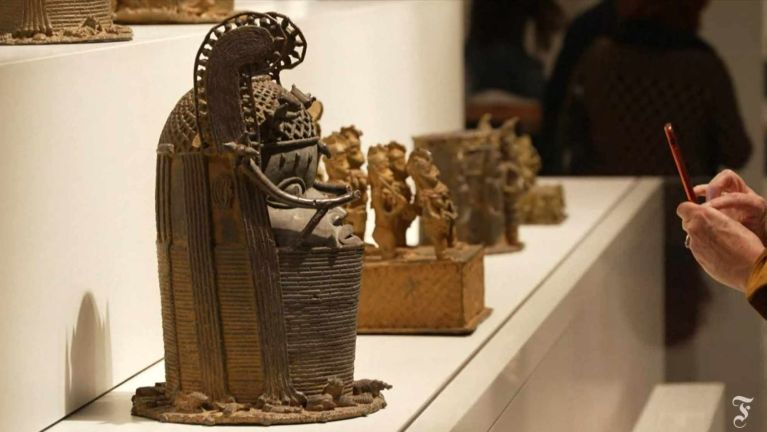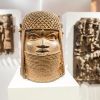Humboldt Forum – a centre of enlightenment
Opened in 2021, the Humboldt Forum in Berlin aims to deepen cultural cooperation among countries and develop a new relationship with the global South.
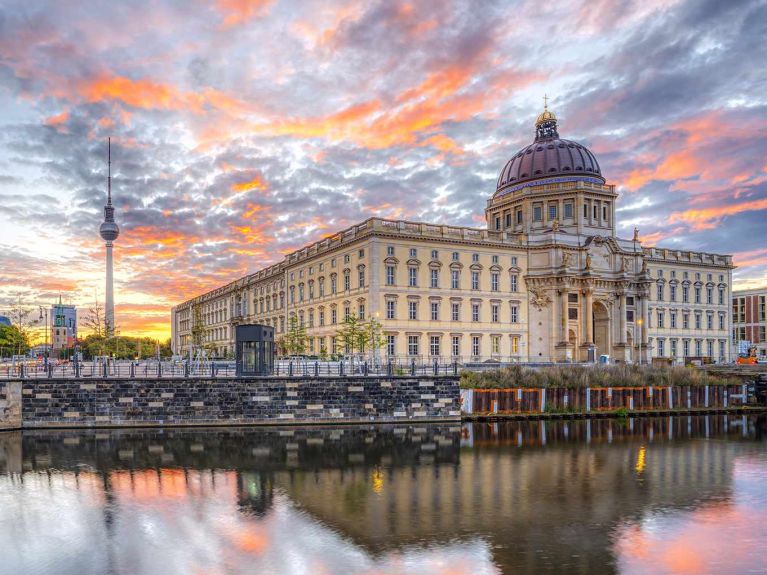
100,000 cubic metres of concrete and 20,000 tonnes of steel, 9,000 cubic metres of sandstone, 958 windows and 24 lifts: the Humboldt Forum in the reconstructed Berlin Palace is a once-in-a-century project in a number of different ways. Completed and opened between 2020 and 2021, the building will be a new centre of cultures and sciences – right in the heart of Berlin, opposite the Museum Island and surrounded by famous neighbours such as the Old National Gallery, the Altes Museum and the Neues Museum as well as the Pergamonmuseum.
Dieses YouTube-Video kann in einem neuen Tab abgespielt werden
YouTube öffnenThird party content
We use YouTube to embed content that may collect data about your activity. Please review the details and accept the service to see this content.
Open consent formThe Humboldt Forum – a centre of cultures and sciences
The new centre of cultures and sciences is used by four institutions: the Ethnological Museum and the Museum of Asian Art – both of which belong to the Prussian Cultural Heritage Foundation, the state of Berlin with its permanent exhibition “Berlin Global”, the Humboldt University with a laboratory and the Humboldt Forum Foundation, which hosts changing exhibitions and events.
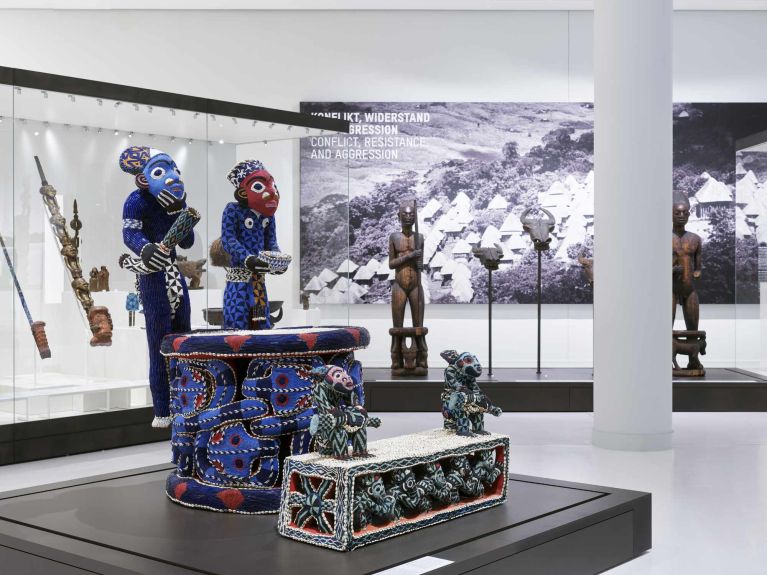
The new building was designed by Italian architect Franco Stella. His reinterpretation draws on the reconstructed Baroque façades of the historic building, which was blown up in 1950, and combines these with a contemporary architectural style. “History meets the present and the future, drawing on these elements to form a new image”: this is how it is described on the Humboldt Forum website.
The reappraisal of the colonial era has a key role to play
The Humboldt Forum also seeks to live up to the underlying principle of its architecture, namely by bringing together the past and the present to project a new future on another level. On the one hand, the treasures of art and cultural history that it houses make it one of the largest and most outstanding cultural projects in Germany. But on the other hand, it is precisely these treasures that gave rise to controversy both in Germany and internationally even before the Humboldt Forum was opened: the origin of many of the historical objects is unclear; some were found to have been unlawfully stolen from colonies that belonged to the German Empire and other European states at the time.
For this reason, the history of colonialism is a core theme of many of the exhibitions. In his opening speech in September 2021, Federal President Frank-Walter Steinmeier emphasised that colonialism and its crimes – “conquest, oppression, exploitation, robbery, murder of tens of thousands of people” – had been “long forgotten” in Germany and were still “blind spots”. As long as awareness of this failed to grow, said Steinmeier, there would be no end to everyday racism. Not until “this forum becomes a true forum, a place where this kind of debate can be held ... will the question of its purpose have been answered,” said Steinmeier.
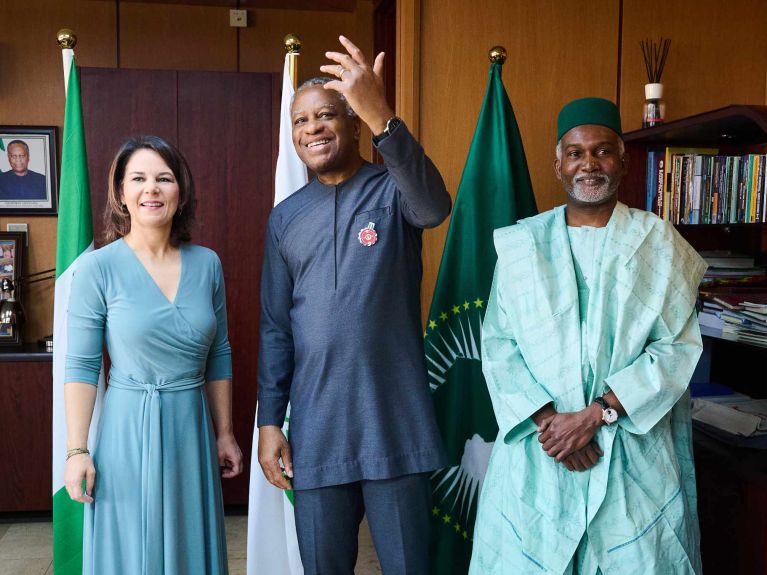
Historic return of bronzes to Nigeria
Germany took a first significant step towards coming to terms with its colonial past in December 2022: after decades of negotiations, Foreign Minister Annalena Baerbock returned 20 Benin bronzes to Nigeria. The Minister said that this was a first step and that more bronzes would follow. The works of art looted in colonial times found their way into the collections of museums in Berlin, Hamburg, Cologne, Stuttgart and Dresden/Leipzig. Some 20 German museums held more than 1,100 of the works taken from the palace of what was then the Kingdom of Benin, which today belongs to Nigeria. The objects were looted by the British in 1897.
Dieses YouTube-Video kann in einem neuen Tab abgespielt werden
YouTube öffnenThird party content
We use YouTube to embed content that may collect data about your activity. Please review the details and accept the service to see this content.
Open consent formSince 2010, the Ethnological Museum housed in the Humboldt Forum has been a member of the Benin Dialogue Group, in which European museums engage in discussion with Nigerian partners about the future of the Benin objects that form part of the collections of the participating institutions. Germany is pushing ahead with provenance research in many other countries, too, including Tanzania and Papua New Guinea. The outrigger boat in the Oceania collection of the Ethnological Museum is from Luf Island. The German institution is in contact with the National Museum of Port Moresby “so as to complement the Eurocentric perspectives and findings of a lot of the existing research and to incorporate the views of partners in Papua New Guinea in the course of ongoing research and dialogue”, according to the museum's website.
Close cooperation in the field of culture and cultural heritage offers the opportunity to “develop a completely new relationship with the global South”, said the President of the Prussian Cultural Heritage Foundation Hermann Parzinger, who was closely involved in the creation of the Humboldt Forum. So in future the Humboldt Forum will continue to contribute to the reappraisal of Germany’s colonial past and help deepen cultural cooperation between the countries.
Would you like to receive regular updates about Germany? Sign up here:

